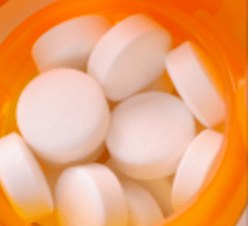Tired of price manipulation and shortages, a consortium of US healthcare providers plans to manufacture, or contract for manufacture, the specific generic drugs it needs for its patients.
With about 300 organizations signed on, including the Department of Veterans Affairs, the group has tentative plans to produce about 20 generic drugs that were volatile in price and availability.
In recent years, investment companies have targeted old, commonly-used generic drugs to make money. Buying a drug license, the company then boosts the price of the drug. Because there are usually no other manufacturers of the drug, the healthcare industry must pay the higher price for the required drug. In a notorious case, hedge fund administrator Martin Shkreli increased the price of an important anti-parasitic drug used to treat HIV from $13.50 pill to $750 per pill.
While the action led to legislative investigation, the supply and pricing of pharmaceuticals has become an expensive pain point for healthcare providers.
IV saline fluid shortage
In a shocking indictment of the capabilities of American pharmaceutical companies to provide a steady supply of even the most basic drugs, the US has been suffering a shortage of IV saline fluids since approximately 2014.
Intravenous saline is an essential component of medical care used to clean wounds, treat dehydration, and deliver and mix drugs. The two companies that manufacture saline in the US suggest that slowdowns with the other manufacturers are to blame. While the cost of saline is contractually controlled for most hospitals, when those contracts expire, the cost of saline is expected to rise dramatically.
In mid-January this year, the FDA noted the ongoing saline shortage:
- The US is experiencing a long-term, ongoing saline shortage.
- The FDA is looking into importing different volume bags from other vendor companies.
- Saline shortages are exacerbated by the current flu season and disaster care in Puerto Rico.
- Expiration dates are under review to see if dates can be safely extended.
- Some institutions have only days of saline left and are rationing.
- The FDA is looking into increased production of IV saline bags. Healthcare providers are filling previously used and empty saline bags with compounded saline fluids.
- Manufacturers are allocating saline products to healthcare providers. The FDA recognizes this creates hardships and has impacted patients.
The provision of safely sourced saline at a reasonable price is a healthcare emergency more likely experienced in a third-world country. Without even reasonable access to IV saline, there is no question of why American healthcare providers are interested in finding answers to better serve patients.
The consortium of healthcare providers is driven by a Utah non-profit organization, Intermountain Healthcare. In a media statement, CEO Dr. Marc Harrison noted, “This is a shot across the bow of the bad guys. We are not going to lay down. We are going to go ahead and try and fix it.”
Without naming the generic drugs it seeks to replace, the consortium plans to either create an entity that can manufacture and safely supply the drugs, or contract with a reliable third-party manufacturer to do the same.
Different visions of the American healthcare landscape
It is anyone’s guess what the American healthcare industry will look like in ten years. Expensive, difficult to access, and prone to serious medical mistake, healthcare in the US continually lags behind other developed countries. While Americans pay more for healthcare, they have poorer health outcomes and lower life expectancy than citizens of countries that pay less for their care.
Corporate giants Berkshire Hathaway, JP Morgan, and Amazon recently announced an ambitious project to create a non-profit healthcare provider for their employees that provides comprehensive care for reasonable prices. Though only in the planning stages, these companies, like the hospitals working to source their own medications, are taking a step towards fixing a national healthcare system that is broken.
Talk to an experienced medical malpractice lawyer in Washington, DC or Baltimore, Maryland
At Schochor, Staton, Goldberg, and Cardea, P.A., we serve clients and families injured by negligence and medical malpractice locally, and around the country. We fight for your right to compensation when you suffer injury due to a medical mistake. Contact us today or call 410-234-1000 to schedule a free consultation concerning your case.

